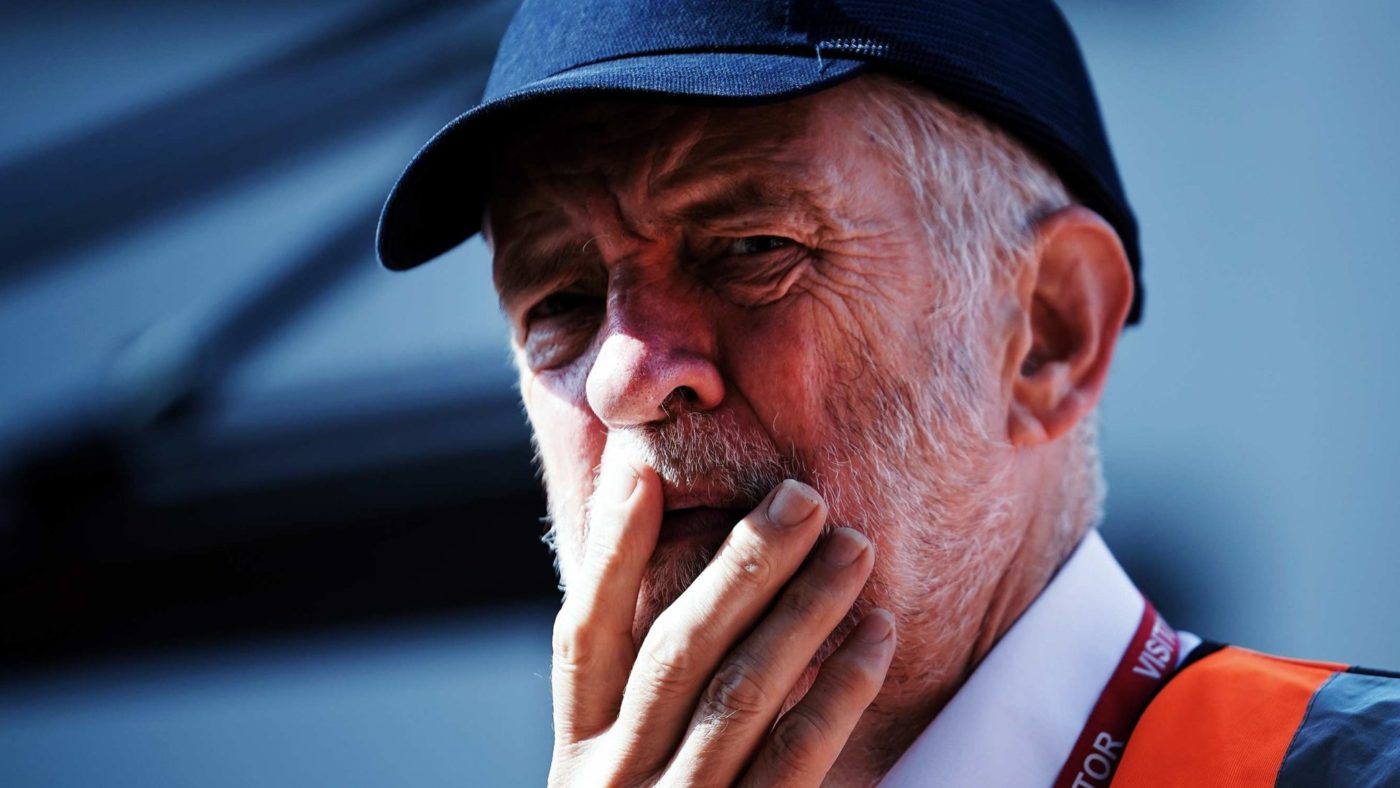The Labour government of 1974-79 faced a crisis of weak growth, spiralling inflation and a plummeting exchange rate. Brian Sedgemore, a backbench MP who fancied his credentials as an economic guru, went to see Denis Healey, the chancellor of the exchequer, to propose the left’s Alternative Economic Strategy of import controls, price controls and compulsory planning “agreements” with industry. History records that Healey fell about laughing.
It’s not funny anymore. Though it’s conventionally regarded as having moved sharply to the left since 2015, Labour has strictly speaking become a party of economic nationalism while evincing scant awareness of its costs. Jeremy Corbyn’s economic thinking bears a striking resemblance to the “America First” philosophy of President Trump.
In a speech to the manufacturers’ organisation the Engineering Employers’ Federation yesterday, Corbyn depicted the post-referendum depreciation of sterling as a lost opportunity because the Conservatives had “sold out” British manufacturing. He urged that “we build things [in Britain] that for too long have been built abroad”. And in a notable flight of fancy, he added: “For the last 40 years … we’ve been told that it’s good – advanced even – for our country to manufacture less and less and rely instead on cheap labour abroad to produce imports, while we focus on the City of London and the finance sector.”
Labour hurriedly issued briefings to explain that, by “cheap labour” Corbyn was referring not to immigrants but to goods made in lower-cost markets overseas. But you can see why commentators misunderstood his point. The wording is abysmally drafted and, as a point of fact, Corbyn did last year say that immigration under Labour “would be a managed thing on the basis of the skills required”. Lest anyone miss his insinuation, he added: “What there wouldn’t be is wholesale importation of underpaid workers from Central Europe in order to destroy conditions, especially in the construction industry.”
There’s a nasty strain of nativism in Labour under Corbyn, and it’s unsurprising that Corbyn’s comments were interpreted in this light. What he was actually expressing was scarcely more reputable: heedlessness of the welfare of British households. He didn’t spell out the implications of a sharp depreciation of sterling in response to the Brexit vote, and perhaps doesn’t understand them, but it means cuts in living standards. It is possible in principle for a lower exchange rate to cause consumers to switch their spending from imported to domestic goods and services, render exports cheaper in overseas markets, and thereby boost output growth. This happens by cutting real wages while money wages remain constant. That’s the point of it.
And that’s supposing it “works”. There’s no automatic reason why Britain’s trade deficit should narrow with a lower exchange rate, especially when big companies have long and geographically dispersed supply chains. British companies that export manufactured goods will pay more for imported components.
What’s even weirder about Corbyn’s economics is his urging that things be built in Britain rather than imported. It’s the exact reverse of how economists understand trade. Imports are a benefit to the British economy; exports are what we give up in order to have them. If Britain aimed for self-sufficiency in the production of food, machine tools and tablet computers, we’d forgo the benefits of specialisation. The division of labour internationally generally boosts the real incomes of both parties.
It’s extraordinary this needs to be said 200 years after David Ricardo explained the idea of comparative advantage, but these are strange times in British policy-making. The government’s anti-European dogmatism is driving Britain not only out of the European Union but, with absolutely no electoral mandate, out of the single market and customs union too.
Almost all economists believe this will have a cost by constraining the flow of goods, services, investment and labour across national boundaries. The probability of a really terrible outcome, in which Britain defaults to trading under the rules of the World Trade Organisation, is growing. The Conservatives have poisoned relations not only with our European partners but Britain’s businesses too.
Amid political stasis and diplomatic chaos, Jeremy Corbyn has thrown in his lot with the delusions of Brexiters. Britain depends on trade; in leaving the EU, it will sharply reduce its leverage in opening other markets.
A party of the rational left would be urging that Britain retain as much integration with the EU as is politically feasible. When real wages have been under sustained pressure for so long, there are strong arguments for redistribution, higher taxes on the wealthy, a boost to cash benefits and tighter regulation of the labour market.
These are all policies I support, as it happens, accepting the trade-offs they will entail. Labour is instead engaged in a fantasy of national economic renaissance through increased self-sufficiency. It’s not progressive and it’s not sensible, but this is what Corbynomics has brought it to.


